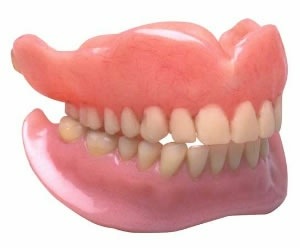Around 3.7 million people in Britain have no natural teeth and many find it difficult to wear lower dentures, causing problems in chewing and speaking that have a significant effect on their quality of life.
Help though is on hand as the University of Manchester is leading a first of its kind trial into the quality of life of people wearing dental implants.
Most of those who have lost their teeth are over the age of 65, and the impact of ill-fitting dentures on their lives is so severe that the World Health Organization has classified individuals with such difficulties as disabled.
One solution to this problem is to fit titanium implants into the lower jaw to hold dentures in place, but this requires significant surgery, which not all patients are able to undergo. An alternative for these patients is to opt for newly developed mini-implants, which are less traumatic to put in place.
The University is working with Central Manchester University Hospitals NHS Foundation Trust (CMFT) to lead the trial which is the first of its kind to provide a cost-benefit analysis and undertake a robust assessment of the impact of mini implants on people’s quality of life, compared with dentures secured by conventional implants.
Professor Martin Tickle, a Senior Research Professor in the School of Dentistry at The University of Manchester, who leads on population health for MAHSC, said: “This pilot trial is one step towards MAHSC’s aim of improving quality of life and it is of particular importance for an ageing population.
“We hope the results of this study will inform a much larger trial that we hope to roll-out across the UK.”
The trial has recently started and so far, sixteen patients have been recruited. Overall, forty four participants will be selected to take part, twenty two of which will receive conventional implants, while the others will be provided with mini implants.
Over the course of six months, the researchers will follow-up with the patients to collect information on their experiences, including the level of pain they have encountered, their ability to chew, and the overall impact of treatment on their quality of life.







